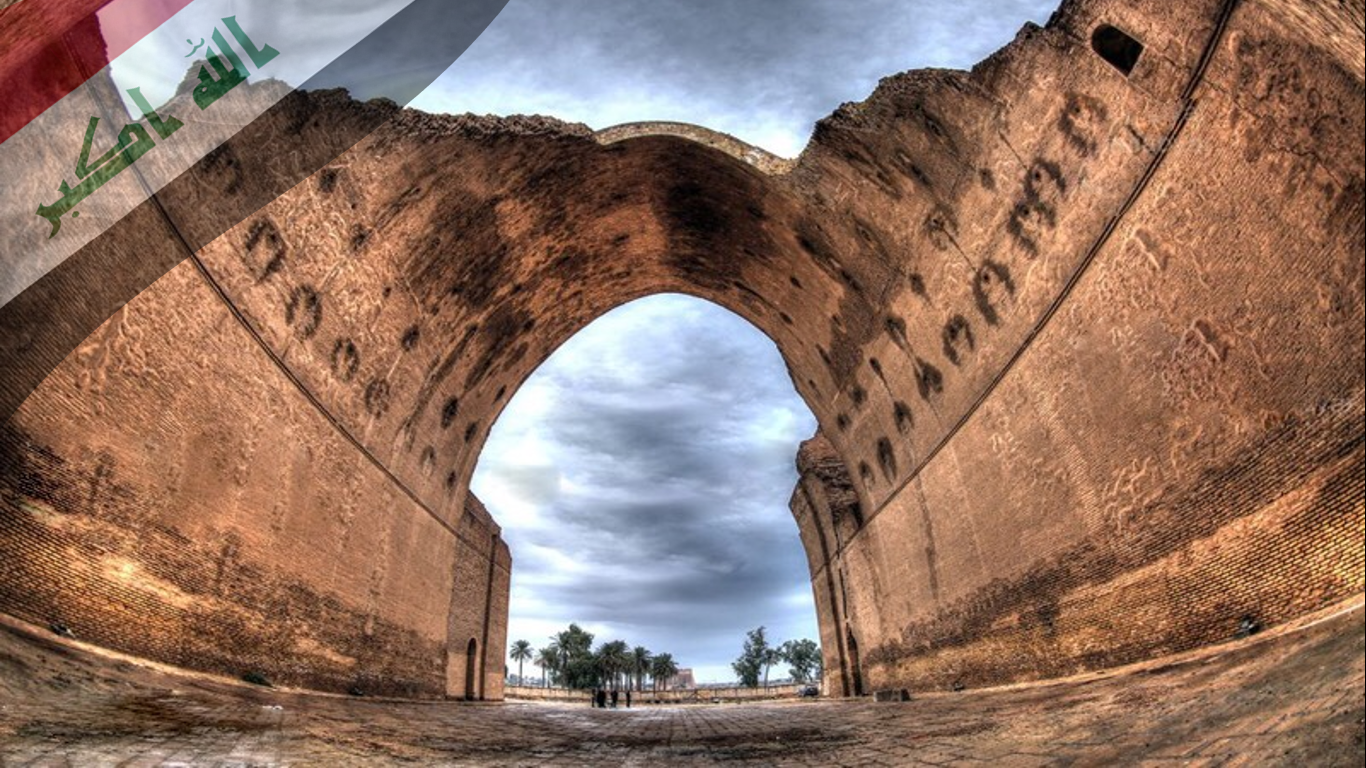For months now there has been a critical economic situation in Syria, which this week entered a critical phase as the value of the Syrian currency started to free fall against the dollar. The situation is in fact hard that it now has political repercussions, as on 11 June Syrian President Baššār al-Asad removed ‘Imād Hamīs, Prime Minister for almost four years by now. Which seems to be a rather controversial decision and surely connected to the economic hardships Syria faces, as new PM Ḥussayn ‘Arnūs was only appointed until the next parliamentary elections. Considering that these elections should have been held in April and were only postponed because of the Corona crisis, therefore they are soon to be held, it is clear that this new government has little time to act and little space to maneuver. So this step was clearly taken less for the trust in the new staff, much more because of the national frustration with the apparent incapacity of the current one to counter the American sanctions, which are soon to be implemented in full capacity.
The real reason behind the crisis in Syria is less due to the government’s policies, which surely had their fair share in it, but are more of the result of the new wave of American sanctions, known as the Caesar Act. These measures are placated by Washington to pressure the Syrian government for alleged humanitarian crimes, but in fact, act as a political tool to enforce a settlement on Damascus. And how severely Washington is behind the economic crisis in Syria was also acknowledged this week by none other than James Jeffrey, American special envoy to Syria. The very same envoy, who a few months ago at the time of the military operations in Idlib was very active in Turkey, showing support for Ankara for its occupation.
The so-called Caesar Act accepted in December 2019 and amended several time is only to be enacted on 17 June, but the panic it causes already had its clear affect on Syria. While Syria is fighting these measures, the case goes way beyond that and it is clearly a part of the general approach toward the whole region. Because it joins and resembles the measures against Iran, specifically targets Russia and Iran to force concessions upon them in their support for Damascus. But it also hits Syria’s neighbors hard. Jordan for long expressed concern by the Caesar Act, being practically incapable of executing it; Lebanon still suffers from an even bigger economic crisis and the Caesar Act might just push it to the abyss as the government of Ḥussām Diyāb is about to buckle; and Iraq is now conducting strategic negotiations with Washington, which are about to determine the future of American presence in Iraq.
So it is clear that even though the Caesar Act aims to hit Syria, but in fact, designed to hit the whole region. And it might haven’t been implemented yet, it already has devastating affects on a number of countries. And here the main questions are, whether the allies and neighbors of Syria will stick together in the face of American pressure, or will give concessions increasing the affect of the sanctions to save themselves. Also what tools Syria has to counter these moves, and what are the even bigger reasons for the current rapid shift.
The Caesar Act
The formerly named Caesar Syrian Civilian Protection Act is strictly American legislation incorporated in the National Defense Authorization Act for the Fiscal Year of 2020. It was accepted with bipartisan support on 17 December 2019, and is about to go into full affect on 17 June 2020, theoretically targeting the Syrian government. In theory, it is designed to prevent the Syrian government to continue its operations in the Syrian war, which the American administration views as acts against the civilian population. It was named after an alleged unnamed informant under the pseudonym of Caesar, who claimed himself to a former Syrian security officer and provided thousands of photographs of alleged systematic torture against unarmed civilians and opposition members. In 2014 a report was issued on the matter, which was soon amended by a Human Rights Watch report and other claims, mostly emanating from Qatar to hinder the political negations in Geneva in 2014.
It managed to seriously hinder the negotiations that time, and indeed the Geneva talks in 2014 failed. While the story lingered on, it was expected to disappear, partially due to the gains of the Syrian Army, but also because a detailed study showed that serious problems with the official versions proving it more as a political fraud. Because it showed that a huge number of the victims on the pictures were in fact Syrian Army soldiers killed by terrorists, or members of armed groups fighting against the government, who can hardly be called innocent civilians. Regardless of that, however, the story and the original claim was never relinquished by Washington, and with Trump taking office it has become a new tool for political pressure. As the Trump administration found no ways to seriously alter the course of the Syrian war in the light of Syrian successes and ongoing Russian military and economic support, it used the “humanitarian card” once again, to achieve political goals.
But what does the act stipulate and what are its formal aims? First of all, it is a bill active for a period of five years, after which it would end automatically. Even before the American President can issue waivers for individuals or states from the bill, but even after its period, it can only be lifted after six demands are met, therefore in theory they can go on forever. To meet such aims it specifically targets any institution, or individual – not only Americans – for having any commercial connection to the Syrian state and with the Syrian leadership, even other states. But what are these demands?
- End to Syrian and Russian aircraft bombing civilians.
- Iranian, Syrian, and Russian forces, as well as entities connected to them, no longer restrict humanitarian access to besieged areas and allow for civilians to leave freely.
- All political prisoners are released, and the appropriate international human rights organizations are given full access to Syria’s prisons and detention facilities.
- The bombing of “medical facilities, schools, residential areas, and community gathering places, including markets” by Syrian, Russian, Iranian forces, as well as entities connected to them, ceases.
- The possibility for the “safe, voluntary, and dignified return of Syrians displaced by the conflict” is achieved.
- Accountability for “perpetrators of war crimes in Syria and justice for victims of war crimes committed by the Assad regime, including by participation in a credible and independent truth and reconciliation process.”
It is clear that most of these demands are based on never proven political accusations against the Syrian state, mostly obsolete by now in the current stage of the conflict. Ceasing bombardments, allowing refugees to return, or allowing humanitarian aid to reach civilians are not matters anymore, even if we suppose they were at any given time. The question of humanitarian aid is especially grotesque, as Washington specifically threatens the U.N. with sanctions if it keeps providing aids to Syria. The only real matters now are the accountability of Syrian officials war alleged crimes, which are rather measures against Syrian sovereignty. And which are rather controversial now, as Trump himself is now conducting a crusade against the International Criminal Court for its intentions to account Israeli and American crimes. The opened still pending matter is the Russian and Iranian support for Damascus, which clearly has little connection to any humanitarian aims, but serve old political goals. Since Washington for long, even before 2011 did its most to distance Damascus from Moscow and Tehran, so far without any result.
Thought this is strictly an American internal law, but it automatically punishes any state, or company not adhering to it. Which is a coercive measure theoretically illegal. Therefore once again strength dominates over international law. The designed aim is to prevent any trade with Syria, and to prevent Damascus to receive even food and medical supplies, which is specifically troubling in the light of the recent Corona epidemic, and that the Americans troops are still occupying Syrian territories stealing oil and grain from Syrian fields. Even worse, deliberately destroying Syrian grain fields. While at the same time the Qasad militia under their wings in Eastern Syria, at that was one of the reasons for the rapid fall of the Syrian currency, offer dollar to the local farmers for their crops, and at an extremely high price and exchange rate. So it is not only the Caesar Act itself but the whole American policy that is hitting Syria now, reaching up to non declared warfare.
But the most controversial of all is that all these demands are not objective cases, but American accusations. Whether Syria is complying or, not, is up to American deliberations solely, as it was clear to see with the Iranian nuclear deal. Which makes it less than tempting for Damascus to comply, as the demands could expand and the series of pressures might never end.
Result and reasons
The panic for the act already started to hit Syria, as it is not clear whether Lebanon will impose it, which is so far the biggest gateway for the Syrian trade. In a result, the Syrian currency started to fall drastically. The exchange rate used to be around 50SYP/1$ before the war, but recently reached 1500, and last week even beyond 3000SYP. The worst is not rapid rise in commodities, but that the rate is fluctuating rapidly. The day after its reach to 3000SYP it went down to 2000SYP, even below that temporarily, only to jump back again. The result is that many traders refuse to operate and stores started to shut down, as the prices are unpredictable. In theory, Syria could thought in very desperate levels, sustain itself, as it has the necessary access to fuel and agricultural products, but the mentioned American occupation with its measures, and by blocking the access to the biggest markets for Syria, Iraq, and Jordan, these suffocate the Syrian economy more than any imposed sanction.
As an act of defiance, the Syrian Central Back posted pictures of huge stashes of dollars countering the claims that the Syrian economy lost all hard currency.



That might convince many that Damascus still has tools to counter the economic warfare, but political results could not have been evaded, and the Syrian President relieved PM Hamīs from his position. That might treat some of the fury in the streets, as reports claimed the new protest erupted in a number of places, but the real question is whether the neighbors and allies of Syria, namely Lebanon, Iran, and Russia will impose the sanctions, or defy Washington. That is a much bigger question than the possible steps Syria can take, as the new government of ‘Arnūs is clearly temporarily until the upcoming elections, which are to be held soon.
Iran will surely do its most to support Syria and will go far with it. Already spent a new ship full of aid and supplies to Syria. That intent was proven before at the “war of the tankers” when Britain stopped an Iranian tanker in Gibraltar, for which Iran blocked a British vessel in the Gulf. And recently Iran managed to send tankers and ships with supplies to Venezuela, which Washington didn’t, or couldn’t stop. But Tehran facing tremendous economic pressure itself might not be able to significantly assist Damascus. Russia is indeed a significant actor in the Syrian scene, and it tries to thwart the American occupation in Eastern Syria, but cannot do much more, as it already faces sanctions and the Russian popular support is decreasing for the involvement. Though Moscow clearly expressed that it will support Damascus against the Caesar Act.
Lebanon is the key matter because that is the only place where matters can truly be regulated by Damascus, not being solely dependent on its allies. But Lebanon itself is on the verge of collapse economically. And the protests there lead the current government of PM Diyāb to buckle, and might just collapse if the US imposes more sanctions. However, here comes the real dilemma. The forces, like the parties of al-Ḥarīrī, Ğa‘ğa‘, or Ğumblāṭ might push the government hard to impose the sanctions against Syria and close the borders completely, but in one hand they don’t enjoy majority either, while on the other hand closing the border would mean that Lebanon loses its biggest market for its products and trade. Meaning that the current leadership can be overthrown, but cannot be replaced by anything more effective, Ḥizb Allah, a staunch ally of Syria cannot be circumvented, and the economy might collapse either way. So there is no solution for the Lebanese dilemma, but the crisis itself is a huge worry for Syria. Ironically, if Lebanon would close the borders that might push the Syrian economy beyond limits, but it would collapse even before that. Lebanon needs Syria more than Syria needs Lebanon.
Iraq now faces a similar dilemma. It was a painstaking process to finally have a government in Baghdad, and now PM al-Kaẓimī holds strategic talks with the Americans trying to achieve their full withdrawal. But the faith of his predecessor ‘Abd al-Mahdī showed that leaning towards any sides can cause the Iraqi government to fall. The political reality determines that al-Kaẓimī needs to push Washington for withdrawal, but for that to achieve America might demand the Caesar Act to be implemented. Because it is reluctant to renew its waivers even for the Iranian sanctions. But if all economic connections are cut with Iran, Iraq would lose its biggest investor and the biggest source of electricity and gas. Which would be almost impossible to survive.
Washington is clear about its intentions, as recently special envoy James Jeffrey admitted that Washington stands behind the Syrian economic crisis. That is less surprising, but his revelations were more than shocking, as it was clear that all this has little connection to any humanitarian cause. As Jeffrey admitted that it had a deal for Syria and the current government to stay in exchange for political concessions. That means that Syria has to cut ties with Iran and Russia, and has to reach a settlement with Israel. And what gives credit for these suspicions are not the recent Emirati gestures we covered before, but now even Saudi Arabia, the biggest regional supporter of Trump’s “deal of the Century” is offering its aid to Damascus if certain demands are met.
The age-old carrot and stick policy is very apparent here with the Caesar Act, but in fact, Damascus has little room to maneuver. If it took the offer to evade the economic pressure it would lose all the reliable allies it relied on during the war. And that would leave it defenseless against any future attempt.
Sanctions of mass destruction
It is clear that the Caesar Act comes as only a new chapter of the age-old policy of sanctions for political concessions. That was used with deadly affect against Cuba for decades. It was used against Iraq, which contributed to the downfall of Ṣaddām more than the war, thought of caused the loss of some 1.5 million Iraqi lives. More recently the same measures met with local mismanagement caused the economic collapse in Venezuela. And the same was used against Iran, so much so that Foreign Secretary Pompeo in 2018 said that Iran must listen to the US “if they want their people to eat”. Which is nothing short of threat with starvation, genocide under international law. What we see with Syrian in light of the Caesar Act is nothing short of that.
For long these measures were criticized, as these only target leaderships in theory, but clearly create suffering for the people, so they would rise up and overthrow their government. That is quite the policy international law wanted to prevent originally. But are these measures effective?
In fact, the lessons of Iran, Cuba, North Korea, but even Venezuela and Iraq prove that these measures are indeed deadly, but they don’t meet the demanded result unless military power is used as well. While the lessons for Libya above all prove that compliance only leaves the targeted state vulnerable and defenseless for any future intervention.
Syria has the means to counter the pressure. It has enough industrial and agricultural assets to survive. Especially that it is rebuilding. The recent scandals, in which even such tycoons and the president’s cousin Ramī Mahlūf was dealt with, might indicate very deep restructuring, a possibility healthy sign of change. Mahlūf enjoying his relation to the president and all the state support behind him, was once a figure larger than life, having shares in all aspects in the Syrian economy and his gemstone was SyrianTel, Syria’s largest mobile service provider. Though he stayed loyal and helped finance the state during the war, some form or a rift happened, and after posting several videos accusing even the president, all his and his family’s assists were frozen. Practically confiscated. All the lessons of the past decade clearly leave no other choice for Damascus as to refuse concessions and continue to resist. But that leaves no other option than to rely on its allies. Iran, Russian, and even more China.
In a result such measures might push Damascus further into the economic realm of China and Russia. Which makes it very curious what Washington really hope to achieve beyond prolonging the suffering of the Syrian people, and to evade the inevitable for some time. Which that Syria would return more powerful than before, and would further tempt regional states to resist American pressure.


